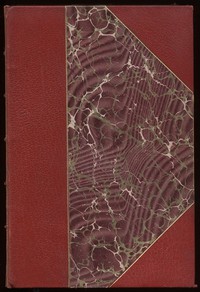Guy Mannering; or, The Astrologer — Complete by Walter Scott (good books to read in english .TXT) 📗

- Author: Walter Scott
Book online «Guy Mannering; or, The Astrologer — Complete by Walter Scott (good books to read in english .TXT) 📗». Author Walter Scott
Mannering, with Sampson for his companion, lost no time in his journey to Edinburgh. They travelled in the Colonel’s post-chariot, who, knowing his companion’s habits of abstraction, did not choose to lose him out of his own sight, far less to trust him on horseback, where, in all probability, a knavish stable-boy might with little address have contrived to mount him with his face to the tail. Accordingly, with the aid of his valet, who attended on horseback, he contrived to bring Mr. Sampson safe to an inn in Edinburgh--for hotels in those days there were none--without any other accident than arose from his straying twice upon the road. On one occasion he was recovered by Barnes, who understood his humour, when, after engaging in close colloquy with the schoolmaster of Moffat respecting a disputed quantity in Horace’s 7th Ode, Book II, the dispute led on to another controversy concerning the exact meaning of the word malobathro in that lyric effusion. His second escapade was made for the purpose of visiting the field of Rullion Green, which was dear to his Presbyterian predilections. Having got out of the carriage for an instant, he saw the sepulchral monument of the slain at the distance of about a mile, and was arrested by Barnes in his progress up the Pentland Hills, having on both occasions forgot his friend, patron, and fellow-traveller as completely as if he had been in the East Indies. On being reminded that Colonel Mannering was waiting for him, he uttered his usual ejaculation of ‘Prodigious! I was oblivious,’ and then strode back to his post. Barnes was surprised at his master’s patience on both occasions, knowing by experience how little he brooked neglect or delay; but the Dominie was in every respect a privileged person. His patron and he were never for a moment in each other’s way, and it seemed obvious that they were formed to be companions through life. If Mannering wanted a particular book, the Dominie could bring it; if he wished to have accounts summed up or checked, his assistance was equally ready; if he desired to recall a particular passage in the classics, he could have recourse to the Dominie as to a dictionary; and all the while this walking statue was neither presuming when noticed nor sulky when left to himself. To a proud, shy, reserved man, and such in many respects was Mannering, this sort of living catalogue and animated automaton had all the advantages of a literary dumb-waiter.
As soon as they arrived in Edinburgh, and were established at the George Inn, near Bristo Port, then kept by old Cockburn (I love to be particular), the Colonel desired the waiter to procure him a guide to Mr. Pleydell’s, the advocate, for whom he had a letter of introduction from Mr. Mac-Morlan. He then commanded Barnes to have an eye to the Dominie, and walked forth with a chairman, who was to usher him to the man of law.
The period was near the end of the American war. The desire of room, of air, and of decent accommodation had not as yet made very much progress in the capital of Scotland. Some efforts had been made on the south side of the town towards building houses WITHIN THEMSELVES, as they are emphatically termed; and the New Town on the north, since so much extended, was then just commenced. But the great bulk of the better classes, and particularly those connected with the law, still lived in flats or dungeons of the Old Town. The manners also of some of the veterans of the law had not admitted innovation. One or two eminent lawyers still saw their clients in taverns, as was the general custom fifty years before; and although their habits were already considered as old-fashioned by the younger barristers, yet the custom of mixing wine and revelry with serious business was still maintained by those senior counsellors who loved the old road, either because it was such or because they had got too well used to it to travel any other. Among those praisers of the past time, who with ostentatious obstinacy affected the manners of a former generation, was this same Paulus Pleydell, Esq., otherwise a good scholar, an excellent lawyer, and a worthy man.
Under the guidance of his trusty attendant, Colonel Mannering, after threading a dark lane or two, reached the High Street, then clanging with the voices of oyster-women and the bells of pye-men; for it had, as his guide assured him, just’ chappit eight upon the Tron.’ It was long since Mannering had been in the street of a crowded metropolis, which, with its noise and clamour, its sounds of trade, of revelry, and of license, its variety of lights, and the eternally changing bustle of its hundred groups, offers, by night especially, a spectacle which, though composed of the most vulgar materials when they are separately considered, has, when they are combined, a striking and powerful effect on the imagination. The extraordinary height of the houses was marked by lights, which, glimmering irregularly along their front, ascended so high among the attics that they seemed at length to twinkle in the middle sky. This coup d’aeil, which still subsists in a certain degree, was then more imposing, owing to the uninterrupted range of buildings on each side, which, broken only at the space where the North Bridge joins the main street, formed a superb and uniform place, extending from the front of the Lucken-booths to the head of the Canongate, and corresponding in breadth and length to the uncommon height of the buildings on either side.
Mannering had not much time to look and to admire. His conductor hurried him across this striking scene, and suddenly dived with him into a very steep paved lane. Turning to the right, they entered a scale staircase, as it is called, the state of which, so far as it could be judged of by one of his senses, annoyed Mannering’s delicacy not a little. When they had ascended cautiously to a considerable height, they heard a heavy rap at a door, still two stories above them. The door opened, and immediately ensued the sharp and worrying bark of a dog, the squalling of a woman, the screams of an assaulted cat, and the hoarse voice of a man, who cried in a most imperative tone, ‘Will ye, Mustard? Will ye? down, sir, down!’
‘Lord preserve us!’ said the female voice, ‘an he had worried our cat, Mr. Pleydell would ne’er hae forgi’en me!’
‘Aweel, my doo, the cat’s no a prin the waur. So he’s no in, ye say?’
‘Na, Mr. Pleydell’s ne’er in the house on Saturday at e’en,’ answered the female voice.
‘And the morn’s Sabbath too,’ said the querist. ‘I dinna ken what will be done.’
By this time Mannering appeared, and found a tall, strong countryman, clad in a coat of pepper-and-salt-coloured mixture, with huge metal buttons, a glazed hat and boots, and a large horsewhip beneath his arm, in colloquy with a slipshod damsel, who had in one hand the lock of the door, and in the other a pail of whiting, or camstane, as it is called, mixed with water--a circumstance which indicates Saturday night in Edinburgh.
‘So Mr. Pleydell is not at home, my good girl?’ said Mannering.
‘Ay, sir, he’s at hame, but he’s no in the house; he’s aye out on Saturday





Comments (0)